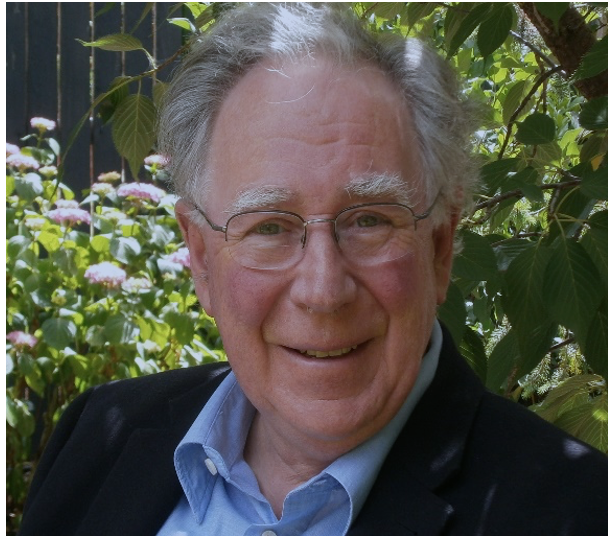Reflecting on the Ratzinger papacy
January 2, 2023
Benedict XVIs life and papacy was a mixed blessing for Catholicism.
I actually have a letter personally signed by Joseph Ratzinger. It was the last in a three year-long correspondence between the then Congregation (now Dicastery) for the Doctrine of the Faith (DDF) and myself focusing on errors in my 1997 book Papal Power (London, Harper Collins). The letter was clear that the DDF was preparing to censure me, which I forestalled by resigning from active priestly ministry.
Personal interactions aside, I have real respect for Joseph Ratzinger because he saved Catholicism during the last years of John Paul II, who was seriously ill for several years before he died on 2 April 2005. Those years were difficult as the popes ability to govern and make decisions declined. Ratzinger, his closest collaborator, saw this close-up and intimately. Clearly, John Paul should have resigned.
After John Pauls funeral the cardinals gathered in Rome for formal pre-conclave discussions and, more importantly, informal meetings. These interactions gave them a chance to size each other up and look for a consensus candidate.
Ratzinger was quickly elected in the April 2005 conclave. His only challenger was Jorge Bergoglio, Archbishop of Buenos Aires. As pope Benedict received a mixed reception. Traditionalists were ecstatic; Vatican II Catholics respectfully welcomed him. Hans Kng said: The name Benedict XVI leaves open the possibility for a more moderate papacy. Calling himself Benedict signalled he wasnt going to be John Paul III.
No one in the media had given Ratzinger a chance of being elected; he was seen as too close to John Paul. So, I was shocked when, standing in the Piazza of Saint Peters with ABC TV News, his election was announced.
Who was Joseph Alois Ratzinger? Born in Marktl-am-Inn in Bavaria in April 1927, he grew up under the Nazis. There was no sympathy for National Socialism in the Ratzinger household, but at 16 he was drafted unwillingly into the Hitler Youth and then into the German army. After the war he entered the Munich-Freising seminary and was ordained priest in 1951.
In 1958 he entered academic life teaching first at Bonn University, then Mnster. In 1966 was appointed professor of Catholic theology at Tbingen University. He played an important role at Vatican Council II (1962-1965) and was associated with the reformist majority.
But after the council he became disillusioned with what he saw as the crassness and banality of the new vernacular liturgy, the exodus from religious life and priesthood and the student riots of 1967-1968. He resigned from Tbingen in 1969 and joined the theology faculty at Regensburg University.
In 1977 he was appointed Archbishop of Munich. He was not well received by the local clergy who found him remote and there were a number of sexual abuse cases that he handled badly. It was already clear in Munich that good governance was not his gift. In 1991 John Paul appointed him to head-up the DDF, where he remained until his papal election in 2005.
He was very busy at DDF issuing statements, discipling theologians and authors, condemning liberation theology and earning nick-names like Gods Rottweiler and Der Panzer Kardinal. Well-known theologians like Hans Kng, Charles Curran, Edward Schillebeeckx and many other less famous theologians, were condemned to silence or to losing their appointments.
Among a series of ill-advised documents, the DDF issued the Declaration Dominus Jesus (2000) which insultingly claimed that that the Anglican and Protestant communions were not churches in the proper sense.
In the early-2000s, with the sexual abuse crisis exploding, the DDF decreed that all credible cases were to be reported to it for review. Bishops were told that everything was subject to pontifical secrecy and cases were not reported to local police. At least, Ratzinger became aware of the crisis.
There was absolutely no doubt about Benedicts intelligence and what theologian Uta Ranke-Heinemann calls his esprit de finesse by which she means his perceptiveness and sensitivity. Essentially, Benedict was a European intellectual who was redeemed by his genuine Bavarian Catholic piety and his love of music, especially Mozart. Mozarts music touches me very deeply, because it is so luminous and yet at the same time so profound. Benedict was a concert standard pianist.
As pope it became clear again that governance was not his strength. Despite long experience in the Vatican, he was unable to bring the bureaucracy to heel and several of his appointments were disasters. An example is Cardinal Tarcisio Bertone as Secretary of State, the equivalent of papal prime minister and foreign minister. Bertone was narrow-minded and parochial. Things in the Vatican went from bad to worse with internal conflict, document leaks and stories of a gay lobby.
Endless discussions of the danger of relativism, by which Benedict really meant post-modernism, did nothing for Catholics in the global south, particularly Latin America, who saw him as deeply Eurocentric, lacking understanding of their reality.
Benedicts jaundiced views on worship led to his granting widespread permission to use an outdated Latin liturgy introduced in the 16th century to satisfy a noisy reactionary clique. Another disastrous error was the imposition of new literal English translation of the Latin of the Mass and sacraments which has left us with almost unspeakable English. He also lacks an historico-critical sense which meant he tended to see issues abstractly rather than in a living, existential sense.
Benedicts most important act was his resignation because in one fell-swoop he relativised the papacy and drained it of its mystery. It showed him as a normal man who admitted that he had come to the certainty that my strengths, due to advanced age, are no longer suited to an adequate exercise of the Petrine ministry. That required humility; the last pope to have resigned was Celestine V in 1294.
It is ironic that the pope who denounced relativism actually relativized papal authority and set a precedent for subsequent popes to do the same. Thank you, Benedict XVI.

